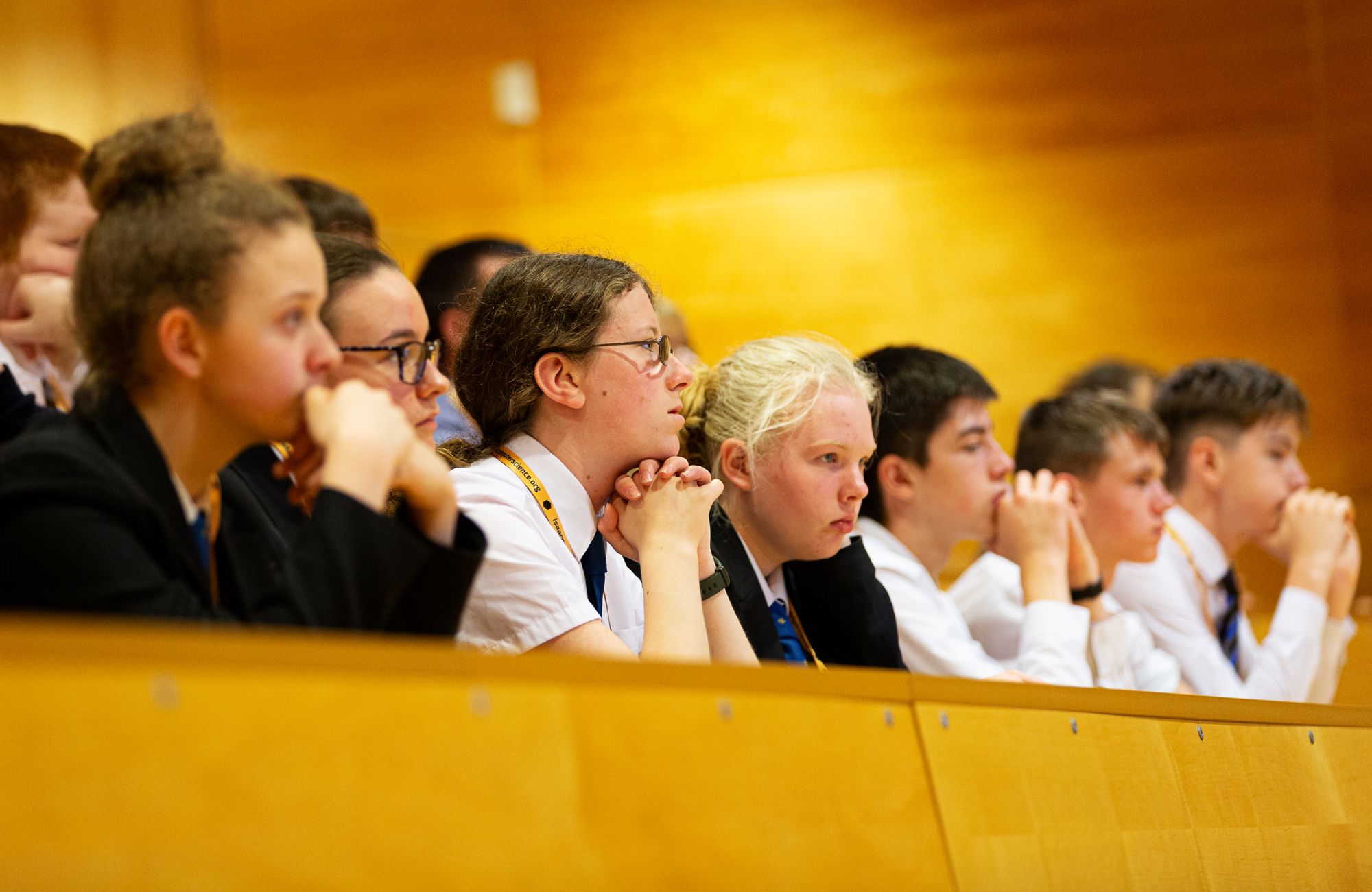Isaac Computer Science: ten new topics released!
08 January 2020

Happy New Year everyone! Since Isaac Computer Science launched in September last year, we have seen over 1,200 teachers and 8,500 students join our platform. That’s an amazing achievement and we couldn’t have done it without your support. Thank you.
If you haven’t heard of Isaac Computer Science before, we are part of the National Centre for Computing Education programme; we run a free online learning platform that features A level Computer Science learning materials for homework, revision, and the classroom. We also run free teacher CPD events and student workshops at universities, colleges, and schools around the country.
New topics for the new year
We are committed to helping A level teachers and students get the most out of Computer Science. That’s why we have just released 10 new topics — 27 in total — on our platform.
They are mapped to the curriculum and are designed to help you save time on your marking and lesson planning. The resources are also perfect for helping your students to revise for their upcoming mock exams. Try them out today!
As former classroom teachers of A level Computer Science ourselves, we understand some of the challenges that you face: the battle to demonstrate that computing is an exciting, important, and relevant subject area to students from all walks of life; the extra hours spent marking and lesson planning; the pressure to get good exam results; and the need to keep up with an ever-changing landscape of new technologies on a limited budget.
Below is a brief summary of each of the new topics.
Functional programming (AQA only)
In this topic, students will learn key terminology relating to functional programs: they will be introduced to basic list operations, function application, and higher order functions, such as map, filter, and fold. Throughout the topic we use examples of short programs written in Haskell and students will be introduced to sufficient syntax to write simple programs.
The internet
This topic covers the main protocols and the technical infrastructure that supports the internet. Students will be introduced to IP addresses, find out how the domain name system works, and learn about the methods used by those that develop resources for the web to ensure standards and interoperability. This topic would not be complete without consideration of the social and ethical issues that arise from our love of the internet; we cover how to tackle a question that asks you to discuss some of these issues, in a considered and balanced way.
GCSE Networking
This topic provides an opportunity for students to either recap what they have already covered at GCSE, or to understand what other students who have previously studied Computer Science may have covered. Most computer networking concepts in this topic are also covered at A level, along with some more advanced additional materials.
Number systems
In this topic, students will look at the sets of integers, real, rational, irrational, and ordinal numbers, and the different ways that they can be represented.
Representation
Students who have studied GCSE Computer Science will be familiar with how binary patterns are used to represent text, images, and sound. In this A level topic, they will expand their knowledge of ways to represent data digitally, learning about topics such as vector graphics and sound synthesis using MIDI.
Theory of computation
This topic introduces some of the concepts that support computational thinking. Students will be introduced to the seminal work of Alan Turing in defining computability, and find out how a theoretical Turing Machine can solve a problem and how a Universal Turing Machine can solve problems!

Networking
Some networking concepts, such as client–server and peer-to-peer networks, and basic network topologies may already be familiar to students from GCSE Computer Science. This topic introduces communication protocols as well as teaching the benefits and drawbacks of various types of networks.
Network hardware
Network hardware devices are present in most homes and schools, but this topic introduces students to a range of devices used for networking, and their purposes. Students will learn about the hardware used in wireless networks, such as wireless access points, and how it is used.
Object-oriented programming
In this topic, we will look at how the OOP paradigm compares to the procedural paradigm. Students will learn how to define objects and classes; the meaning of OOP terms such as encapsulation, inheritance and polymorphism; and how to use UML to model objects and their interactions.
GUIs (OCR only)
For the OCR programming practical project, students will need to produce a graphical user interface (GUI). This topic looks at what a GUI is and explains how it requires you to think slightly differently about the programs you produce. We will also look specifically at using HTML and CSS to create an interface, and how you might combine these markup languages with the programming language JavaScript to process and display data as a webpage.
That’s a lot of new topics right?!
We’re really looking forward to hearing about how you get on with them. Please send any feedback through our contact form, or come and tell us in person at one of our events.